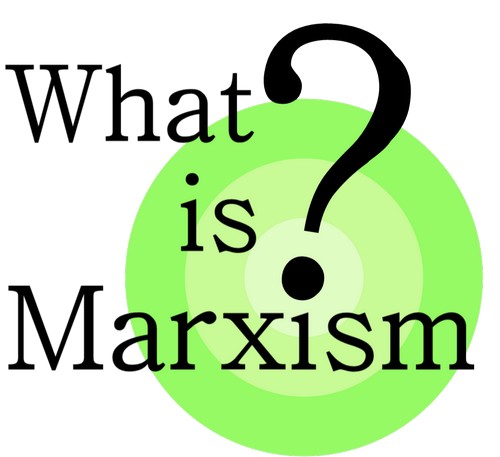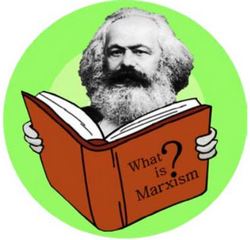
22nd – 24th August 2025
University of Worcester, St John’s Campus, Henwick Grove, St John’s, Worcester, WR2 6AJ
Karl Marx (and Friedrich Engels) gave us a method for explaining how society functions, based on materialist principles and analysis of the economic framework within which goods and services are produced. This body of work has been summed up as ‘Marxist’. Since the 19th Century, these theories have been interpreted by countless historians, economists, sociologists, philosophers and political theorists and activists. Their work too has been called ‘Marxist’. Where does an interpretation become a misinterpretation, and how can we judge what’s accurate?
The Socialist Party’s weekend of talks and discussion considers how Marxism has developed and its influence today, and the extent to which it is an essential part of the case we put for a marketless, stateless society of free access and production for use that we call socialism.
Friday 22nd August
19.15 – 20.45: Marxism and Marx – Can they ever be friends?
Karl Marx was both a theorist and a political activist, and in both cases many people have either claimed his name or had it inflicted on them. This talk will consider what things Marxists would have to say and do to merit the name. The most prominent political movement claiming his name is or was Marxism-Leninism. Two common theoretical stances are those of Western Marxism and analytical Marxism. In each case they will be measured against the most plausible relevant commitments which can be attributed to Marx. While they vary widely in their nature, in each case it will be suggested that in some respects or other they all fall short of an accurate reflection of Marx’s own views.
Speaker: Keith Graham
Saturday 23rd August
10.00 – 11.30: Marxism, Reforms and Reformism
The question of the role and function that reforms play in the transformation from capitalism to communism has been brought to the surface again in recent years by ‘democratic socialist’ trends advancing the argument for ‘non-reformist reforms’. How does the idea of non-reformist reforms relate to existing approaches to reforms and reformism within the communist movement? And what place, if any, would we understand reforms as having within a Marxist programme? The talk will explore how reforms are related to in the programmes of Classical and Orthodox Marxism, in particular the purpose of minimum demands within this, considering these questions in relation to the approaches of the left today, and thinking about how we might deal with the challenges that emerge from these approaches.
Guest speaker: Cat Rylance
14.00 — 15.30: Do socialists need Marx?
It has been said that, when socialism is established, it will be without the majority of the people who establish it knowing much if anything about Marx. And with reference to now, when the socialist case is put to people, they can easily be put off if it is closely associated with Marxism. This is because Marxism is commonly represented either as something that has been tried and failed (eg, the Soviet Union) or, when seen as existing now, some kind of authoritarian political system (eg, China). It is also often associated with small left-wing groups wedded to the ideas of Lenin or Trotsky, which most people also find unattractive. So should the SPGB, while in its theory espousing many (though not all) of the ideas about capitalism and socialism put forward by Marx, claim these as an integral part of its case for socialism? Or should it at least avoid putting them in the forefront and focus instead on simply fostering an understanding of how capitalism works and why and how socialism should replace it – all based on the reality of the contemporary world and not on a theory put forward close to two centuries ago?
Speaker: Howard Moss
19.15 — 20.45: For Marxist Pluralism
Breaking news: Marxists don’t always agree. And yet the idea has got about that Marxism ought to be something unitary, monolithic, and unquestionable. This talk will argue instead that debate and disagreement are no bad thing: in fact, it’s hard to see how Marxism could be either a democratic movement or a scientific theory (and it claims to be both) without them. Socialist society itself will probably include an enormous diversity of opinions, on all sorts of topics: some of them innovative, some bracing, some pedantic, some plainly wrong-headed (William Morris’s vision of socialism in News from Nowhere includes a ‘grumbler’ who thinks capitalism probably had a lot to recommend it). The talk will sketch out a case for Marxist pluralism on both democratic and scientific grounds, and will suggest that Marxism is only strengthened by the existence of a range of views—but if you don’t agree, you are of course welcome to come along and argue the other side. (You’re also welcome to come along and agree.)
Guest speaker: Dr Edmund Griffiths of the Communist Corresponding Society
Sunday 24th August
10.00 — 11.30: Marxism and The Social Republic. Marx and Kautsky on the Democratic Transformation of the State
Much has been made of Marx’s comment that “the working-class cannot simply lay hold of the ready-made state machinery, and wield it for its own purposes,” For some within the Marxist tradition this statement has come to mean that the working class should abstain from electoral political activity. I will show how this reading, from the likes of left communists, councilists, and communisation theorists is mistaken.
What Marx meant was that socialism could only be achieved through a widening of democratic mechanisms – through the development of what we could call “the social republic” – and not by minority decree or dictatorship. The only realistic way of achieving socialism lies in a majority gaining control of the state and enacting a democratic transformation that creates the conditions that allow for the realisation of socialism.
I will examine this idea as it was put forward by Kautsky, one of the chief popularisers of Marxism. Kautsky’s opposition to the Bolshevik dictatorship, on the grounds that it was undemocratic, led him to being labelled a ‘renegade’ by Lenin. Also, his criticisms of spontaneity – emphasising the need to build and develop clear democratic structures – led him into disagreements with left radicals like Rosa Luxemburg and Anton Pannekoek. An obituary in the Socialist Standard of January 1939 stated that “Kautsky’s life and work might perplex future historians of the working class”. This talk will serve to clarify a highly important factor of Kautsky’s contribution to Marxism, the inseparability of socialism and democracy.
Speaker: Darren Poynton
All talks will be streamed live via Zoom. Click https://zoom.us/j/7421974305 to join.

Our venue is the University of Worcester, St John’s Campus, Henwick Grove, St John’s, Worcester, WR2 6AJ.
Bookings now closed
Email enquiries to spgbschool@yahoo.co.uk.
